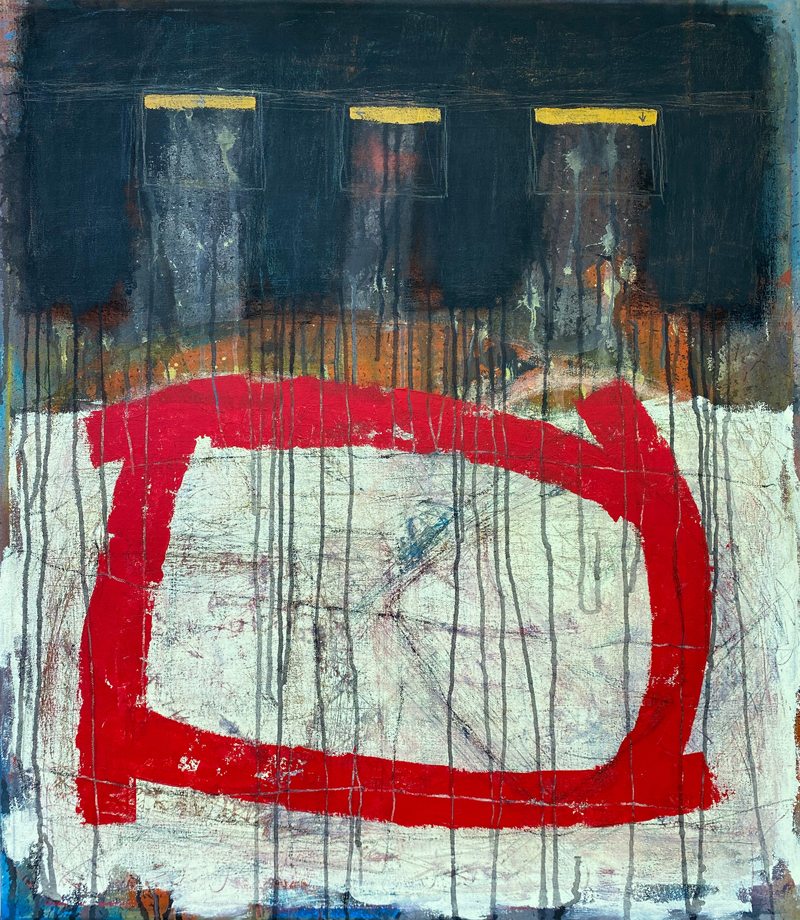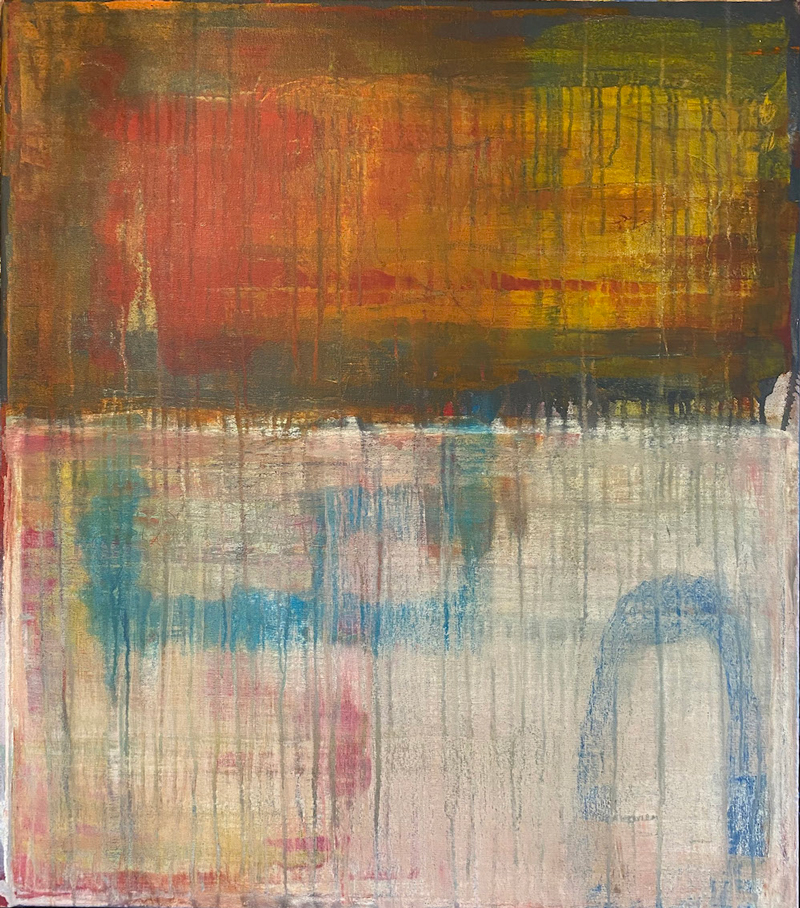
On View: Ted Dixon: Eighteen
Ted Dixon: Traffic
Dixon’s unwavering commitment to the possibilities and power of abstraction. Eighteen features recent paintings inspired by his reading of The 1619 Project: A New Origin Story, a book developed by Nikole Hannah-Jones. The texts reframe US history by placing the consequences of slavery and the contributions of Black Americans as central to the national narrative. The contributing writers encompass an array of thinkers—journalists, artists, academics, anthropologists, historians and legal scholars. Thus, the collection provides a rich scholarly picture for reader engagement.
The 1619 Project is a Pulitzer Prize winning book published in partnership with The New York Times in 2019. Within this powerful tome, there are 18 essays covering a variety of themes. The topics highlight many aspects of the Black experience in America—including “Punishment,” “Fear,” “Citizenship,” “Self-Defense,” “Church” and “Music.” In this series, Dixon uses these themes as a catalyst for his abstract painting practice. Each painting corresponds to one of the 18 chapters and encapsulates Dixon’s responses to the texts. The paintings are intuitive and aligned with the artist’s life experiences as a Black man, resulting in both emotive translations and emblems reflective on past and present.
◈◈◈
The 1619 Project exposes an alternate lens upon American history, thereby challenging standard interpretations of various aspects of cultural and political institutions. Dixon’s visual responses take a look through this lens—reliving and reimagining a collective trauma. He acknowledges the atrocities that have happened in the United State’s founding and nation building in order to transcend these nefarious histories. Dixon arrives at a point that balances a reckoning of the past and a promise of hope for the future. Through his embrace of abstraction—his freedom to interpret colors and construct shapes—his paintings allow him to recognize pain, but not to be defined by it.
◈◈◈
Dixon creates paintings that connect to place and time. His moods and emotions act as filters in the painting process, resulting in canvases with energetic shapes and striking colors. Dixon especially enjoys combining lines and circles, exploring both visual and thematic tensions and harmonies within the same painting. The artist states that “the most challenging moments of a painting are often the most pleasing.” In this way, the artist is able to craft multilayered compositions that delight the eye and fulfill the viewer’s yearning for complexity and intrigue, while simultaneously expressing a visual interpretation of history. In Eighteen, Dixon crafts, plays and manipulates form, line and color to find where the three fuse. While Dixon’s practice has been influenced by the traditions of Abstract Expressionism, he pushes to create compositions that reflect his personal aesthetics and messages in richly layered acrylic renderings. They are created through a labored process of layering, removing and reworking paint. Dixon’s linear structures are overlaid with circles, ovals, X’s and conical forms.
In Eighteen particularly, stripes and stars are inverted and recolored as his reinterpretations of the American flag. Perhaps a result of responding to written histories, in this series Dixon incorporates more representational elements than in previous work. In Punishment viewers see a bloodied figure interpreted through the artist’s Color Field-esque abstraction. Church provides a colorful and homey visage, while darker under layers peek through. His lines are strong, and textures and pigments are the reigning elements. Registers of color and symbolism repeat throughout the series, harkening to ancient traditions of visual storytelling. Dixon embodies the concept of Black Joy as he reflects on this book through his paintings. As defined by the National Museum of African American History and Culture, “Black Joy demonstrates that internal responses are fully within a person’s control. They have the power to restrict access to their spirits, emotions and the source of their joy. It is a well-spring of power that is uplifting and life-affirming.” Dixon’s abstractions allow viewers to explore a truthful and nuanced picture of the past and present—but also future potentials.



